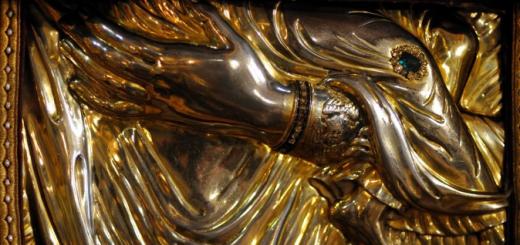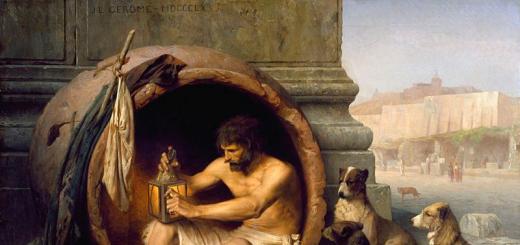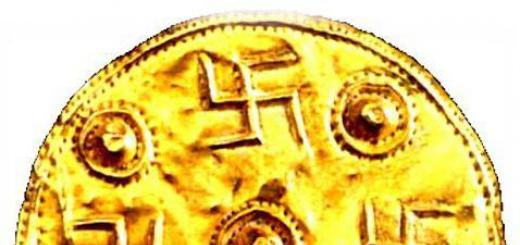After the subjugation of Greece to Rome in the II century. BC e. the teachings that appeared in Ancient Greece in the era of the collapse of the Athenian state, such as Epicureanism, Stoicism, and skepticism, are transferred to the ancient Roman soil. Over the course of five centuries, ancient Roman authors elaborated and developed concepts that often survived only in fragments from the ancient Greek period, giving them the artistic completeness and practicality of the Roman soul.
The Romans, unlike the Greeks, were very active, and the contemplative nature of Greek philosophy disgusted them. “After all, all the merit of valor lies in activity,” Cicero drops this phrase as a matter of course.
The practical orientation of the Roman soul led to the fact that in ancient Rome they were interested not in dialectics and metaphysics, but mainly in ethics. The closest Greek philosopher to the Roman Empire, Epicurus, gained fame in ancient Rome, and he found followers. His views were very close to the political situation of ancient Rome during the collapse of the republic.
Lucretius
The popularity of Epicurus was promoted by the poem “On the Nature of Things” by Lucretius Cara (c. 99 - c. 55 BC) (Lucretius is a name, Car is a nickname), a native of Rome, who lived in the era of civil war between supporters of Sulla and Maria and uprisings Spartacus. Lucretius was not a theoretician, but a poet; even more of an Epicurean than a poet, because he himself claimed that he undertook to present the views of Epicurus in poetic form to facilitate their perception, following the principle that the main thing is pleasure, as, say, a patient is given bitter medicine along with honey, so that it would not be unpleasant to drink .
Lucretius explained many of the views of Epicurus, whose works have survived only in fragments. He wrote about atoms, which must have a different nature than visible things, and not be destroyed, so that something new constantly arises from them. Atoms are invisible, like the wind and the smallest dust particles, but things, people and even gods are formed from them (as from the letters of a word).
Nothing can come from nothing by the will of the gods. Everything comes from something and turns into something due to natural causes. In fact, all changes occur in the world from the movement of atoms, which is random, mechanical in nature and imperceptible to people.
Lucretius paints a grandiose picture of the evolution of the world as a process that proceeds without the participation of any supernatural forces. Life, in his opinion, arose by spontaneous generation from inanimate nature. The properties of all things depend on the characteristics of the atoms of which they are composed, and they also determine our sensations, with the help of which a person cognizes the world around us. Soul and spirit are also material and mortal.
The social life of people is the result of their initial free contract among themselves. The gods do not interfere in the lives of people, as evidenced by the existence of evil and the fact that punishment can befall the innocent, and the guilty remain intact.
Can't you see
That only nature cries out for one thing, and that only demands,
So that the body does not know suffering, but the thought enjoys
Feeling pleasant away from the consciousness of care and fear?
We thus see what corporeal nature needs
Only a little: that suffering removes everything.
Those who in life took the true mind as their helm,
He always possesses the wealth of moderate life;
His spirit is serene, and he lives, being content with little.
In such very precise words, Lucretius conveys the essence of the teachings of Epicurus.
Epicureanism is more suitable for free people who can climb into an ivory tower. And the slave? How can he live unnoticed and without fear to enjoy life? Every person in the era of the empire was under the heel of a tyrant. Under these conditions, the teaching of Epicurus loses its vitality, no longer fits the social circumstances of the Roman Empire, when a person is forced to confront the authorities.
STOICS
The views of the Roman Stoics differed from the Greek in tonality - the strength of their feelings and the expressiveness of poetry - and this was due to a change in social conditions. Gradually, the dignity of people was undermined and at the same time their confidence. The psychological margin of safety was exhausted, and the motives of doom began to prevail. B. Russell wrote that in bad times philosophers invent consolations. “We cannot be happy, but we can be good; let's imagine that as long as we are kind, it doesn't matter if we are unhappy. This doctrine is heroic and useful in a bad world.”
Among the Roman Stoics, the leading features are not pride, dignity, self-confidence and inner steadfastness, but rather weak b awn, feeling of insignificance, confusion, brokenness. Nor do they have the optimism of the Greeks. The concepts of evil and death come to the fore. The Roman Stoics demonstrate the steadfastness of despair and patience, through which the motive of spiritual freedom breaks through.
A famous Roman propagandist of Stoicism was Cicero (106 - 43 BC). They explained the basic Stoic concepts. "But the first task of justice is not to harm anyone, unless you are called to do so against the law." To live in harmony with nature means “to be always in harmony with virtue, and to choose everything else that corresponds to nature only if it does not contradict virtue” (i.e. wealth, health, etc.). More, however, Cicero is known as an orator.
SENECA
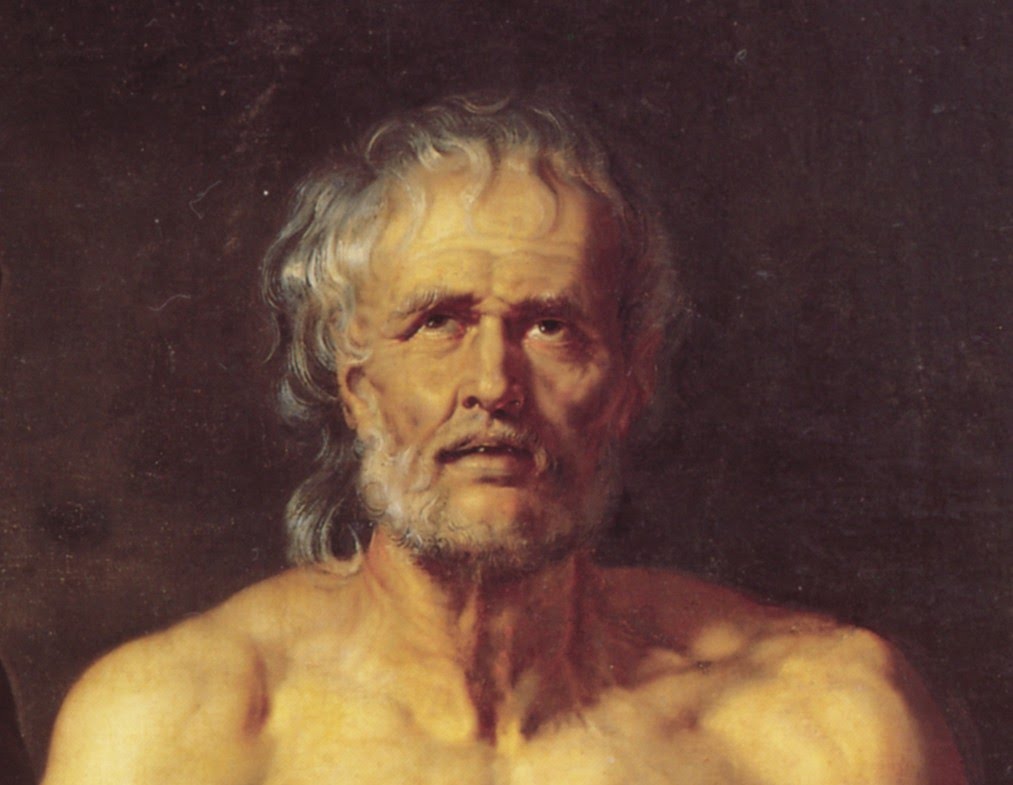
A Spaniard by origin, Seneca was born in Rome. From 48 AD e. he is the tutor of the future emperor Nero, from whom he accepted death. The works of Seneca are as difficult to parse as a fictional novel. Retelling does not seem to reveal anything new, but if you start reading, you fall under the charm of style. This is an author for all times and peoples, and if there are several books that everyone should read in their lives, this list includes Seneca's Moral Letters to Lucilius. Reading them is useful and delivers inexplicable spiritual pleasure.
From an aesthetic and moral point of view, the works of Seneca are impeccable. Even in Plato, highly artistic parts of the text are interspersed with quite ordinary ones. In Seneca, everything is carefully finished and combined into one whole, although we are dealing with a series of letters, apparently really written to the addressee at different times. The unity of the work gives the integrity of the author's worldview. The moral preaching of Seneca does not sin with edification, cheap slogans, but subtly leads and convinces. We see in the author a combination of pride, valor, nobility and mercy, which we do not find either in Christian missionaries, who are distinguished by a different set of virtues, or in the philosophers of modern times.
In the work of Seneca, the motive of suffering prevails, and confidence in the possibility of getting rid of them goes out, leaving hope only for oneself. “We are not able to change ... the order of things, but we are able to gain greatness of spirit, worthy of a good man, and steadfastly endure all the vicissitudes of the case without arguing with nature.” Outside of himself, man is powerless, but he can be master of himself. Look for support in your own soul, which is God in man, Seneca advises.
Seneca contrasts external pressure with individual moral self-improvement and the struggle, first of all, with one's own vices. “I didn’t judge anything but myself. And why do you come to me in the hope of benefit. Anyone who expects to find help here is mistaken. Not a doctor, but a patient lives here.”
In order to gain independence from the despotic forces in the power of which a person is, Seneca proposes to become indifferent to fate, not to follow, like cattle, the leaders of the herd and views that find many followers; but live as required by reason and duty, i.e. by nature. "To live happily and to live according to nature are one and the same." “What is freedom, you ask? Do not be a slave to circumstances, or to inevitability, or to chance; bring fortune down one step with yourself; and as soon as I realize that I can do more than she, she will be powerless over me.
Understanding slavery in the broadest sense and fighting against it, thereby reflecting the growing anti-slavery sentiment and bringing the death of the slave system closer, Seneca believes that every person is potentially free, in a soul that cannot be given into slavery.
Seneca's morality is distinguished by mercy, philanthropy, compassion, pity, reverent attitude towards other people, benevolence, gentleness. In an all-powerful empire, the life of a philosopher is not safe, and this was fully experienced by Seneca, who was accused by his former student Nero of plotting against him. Although no evidence was found, Seneca, without waiting for arrest, opened his veins, remaining faithful to his views. It is not so important whether Seneca participated in the conspiracy against Nero or not. The very fact that he took part in state affairs indicates that he was preparing his own death. He is guilty of only one.
Seneca is the pinnacle of the moral and philosophical thought of mankind. He managed to synthesize everything of value that was in ancient ethics, not excluding the teachings of the opponent of the Stoics, Epicurus. He could agree that absolute truth is impossible, but for him this question is not important, but the question “how to live?”. This question cannot be saved by paradoxes, it must be solved here and now.
Seneca combined the fate of the three great ancient Greek philosophers. He was the educator of the future emperor, like Aristotle (although, unlike him, he believed that a virtuous person could be happy even under torture); wrote as artistically as Plato, and died, like Socrates, in the conviction that, according to the establishment of nature, "it is more unfortunate to bring evil than to suffer."
EPICTETUS
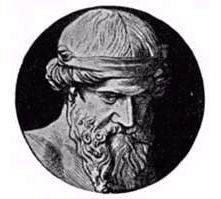
The first thing the student needed was to realize his own weakness and impotence, which Epictetus called the beginning of philosophy. The Stoics, following the Cynics, believed that philosophy is medicine for the soul, but in order for a person to want to take medicine, he must understand that he is sick. "If you want to be good, first be imbued with the conviction that you are bad."
The first stage of philosophical education is the rejection of false knowledge. Having begun to study philosophy, a person experiences a state of shock, when, under the influence of true knowledge, he seems to go crazy, abandoning his usual ideas. After that, new knowledge becomes the feeling and will of a person.
Three things are necessary, according to Epictetus, to become virtuous: theoretical knowledge, internal self-improvement, practical exercises (“moral gymnastics”). Daily self-examination, constant attention to yourself, your thoughts, feelings and actions are required; vigilant surveillance of oneself, as of the worst enemy. It is necessary to get rid of passions gradually, but consistently. You are used to being angry every day, try to be angry every other day, and so on.
The two basic principles of Epictetus are: "Withstand and refrain." Steadfastly withstand all the external difficulties that fall upon you, and whatever happens, take it easy. “Only one road leads to freedom: contempt for what does not depend on us”2. Refrain from any manifestation of your own passions, remembering that yours is only the mind and soul, but not the body. “Take my body, my property, my honor, my family - but no one can have my thoughts and willtake away, nothing can suppress them. "And you, although you are not yet Socrates, must, however, live like a man who wishes to become Socrates."
We also find in Epictetus the “golden rule of ethics”: “The position that you cannot tolerate, do not create for others. If you do not want to be a slave, do not tolerate slavery around you.
MARC AURELIUS
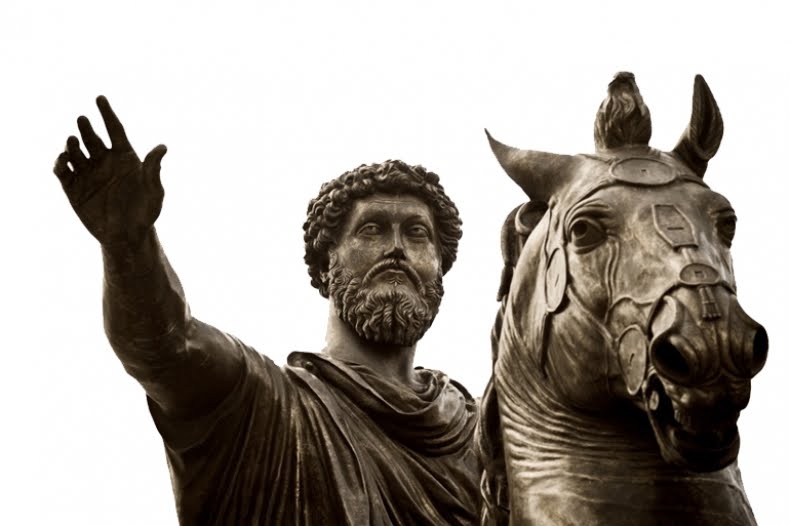
Shaky became not only the position of the individual, especially the slave, but also the empire. It was time for her decline. This is not the pessimism of a slave or a courtier, but the pessimism of an emperor and, therefore, an empire. Marcus Aurelius had all the power, all the "bread and circuses", but they did not please him. Strange as it may seem, it is during the period of the maximum power of the empire that a person inside it feels most unprotected and insignificant, crushed and helpless. The stronger the state, the weaker the individual. And not only a slave or a courtier, but an unlimited ruler himself.
An important place in the philosophy of Marcus Aurelius is occupied by the requirement to always be the same in response to the influence of external circumstances, which means constant proportionality, internal consistency of the mental disposition and all life. “To be like a cliff against which a wave is constantly beating; he stands, and the heated wave subsides around him.
We meet similar thoughts in Seneca. “Trust me, it's a great thing to always play the same role. But no one but the sage does this; all others are many-sided. The lack of integrity and wholeness is the reason that people, entangled in the change of masks, are split. And integrity is needed, because the person himself is a part of the world whole, without which he cannot exist, like an arm or a leg separately from the rest of the body. The idea of the unity of everything in the universe is constantly repeated by Marcus Aurelius.
That was the only case in world history when a state was ruled by a philosopher and the visible social pinnacle of the triumph of philosophy was reached. It would seem that it was Marcus Aurelius who would try to create a state on those philosophical principles that were developed in philosophy, starting with Socrates and Plato. But Marcus Aurelius not only did not start cardinal transformations (although as an emperor he had every opportunity for this - not like Plato), but did not even turn to people with philosophical sermons that had become fashionable at that time, but only kept a diary - for myself, not for publication. This is an extreme degree of disappointment in the possibility of improving the situation. One of Plato's desires for a philosopher to rule the state came true, but Marcus Aurelius understood how difficult, if not hopeless, it was to try to fix people and social relations. In the self-belittling of Socrates there was irony, in the self-belittling of Seneca and Marcus Aurelius there was genuine grief.
Teaching people how to live, the former slave Epictetus, the philosopher on the throne Marcus Aurelius, the statesman and writer Seneca, comparable in artistic skill only with Plato, and in the poignantness of his writings closer to us than Plato, are the most significant names of Roman stoicism.
All three were united by the conviction that there is a reasonable need for submission to the universal higher principle, and only the mind, and not the body, should be considered one's own. The difference is that, according to Seneca, in the external world everything is subject to fate; according to Epictetus - the will of the gods; according to Marcus Aurelius - the world mind.
The similarity between the Roman Stoics and the Epicureans, as well as between the Greeks, consisted in the orientation towards life by nature, isolation and self-sufficiency, serenity and dispassion, in the idea of the materiality of the gods and the soul, the mortality of man and his return to the world whole. But the understanding of nature by the Epicureans as the material Universe remained, and by the Stoics - as the mind; justice as a social contract - by the Epicureans and as a duty to the whole world - by the Stoics; recognition of free will by the Epicureans and higher order and predestination by the Stoics; the idea of the linearity of the development of the world among the Epicureans and the cyclical development of the Stoics; orientation towards personal friendship among the Epicureans and participation in public affairs among the Stoics. For the Stoics, the source of happiness is reason, and the basic concept is virtue; for the Epicureans, feeling and pleasure, respectively.
SEXTES EMPIRICUS
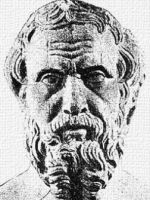
Fragments of works remained from ancient Greek skeptics. Sextus Empiricus (end of the 2nd - beginning of the 3rd century AD) gave a complete teaching with a detailed criticism of representatives of other directions. He did the same generalizing work that Lucretius did with Epicurus.
In the idea of the relativity of good and evil, Sextus finds his advantages. The rejection of the concept of the common good makes a person more resistant to public opinion, but in the absence of the main individual goal that subjugates all others, a person in the bustle of circumstances loses self-confidence and gets tired of fulfilling small goals that often contradict each other and deprive life of meaning. The skeptic himself, as a philosopher, must regard wisdom as a blessing.
Sextus gives an exhaustive summary of skeptical conclusions and teachings. We find in him logical paradoxes like "I am a liar", indicating that thinking, in principle, cannot be strictly logical and avoid contradictions. "I'm a liar," the man declares. If so, then his statement cannot be true, i.e. he is not a liar. If he does not lie, then his words are true, and, therefore, he is a liar.
We meet with Sextus paradoxes associated with qualitative changes in things, for example, the “grain and heap” paradox attributed to the philosopher of the Megarian school Eubulides from Miletus (4th century BC): “If one grain does not make a heap, and two do not make heaps, and three, etc., then there will never be a heap. Here we can say about the lack of understanding of what is obvious to modern science - the emergence of new properties in more complex things. Denying them, Sextus proves that if a part does not have any property (the letter does not denote a thing), then the whole (word) does not have this property either. Sextus can be corrected according to modern science, but the cornerstones of skepticism remain.
Diogenes Laertes considered skepticism to be a direction penetrating all ancient philosophy. The ancient Greeks paid great attention to logical difficulties, because for them rational arguments were of the greatest importance, and paradoxes were attracted by the possibility of resolving them, which sometimes turned out to be unsuccessful.
However, if everything is denied, then it is impossible to talk about anything. This forces one to make positive assertions. If I don't know if I know something, then maybe I do know something? Consistent skepticism opens the way to faith.
It is the merit of the skeptics to try to determine the limits of rational thinking in order to find out what can and cannot be expected from philosophy. Dissatisfied with the framework in which the mind functions, they turned to religion. Undermining the authority of reason, the skeptics thus prepared the offensive of Christianity, for which faith is higher than reason. Despite the efforts of Epicurus and the Stoics, it turned out that the fear of death could not be overcome by reasonable arguments. The spread of Christianity was caused by the entire logic of the development of ancient culture. People want happiness not only here, but also after death. Neither Epicurus nor the Stoics nor the Skeptics promised this. Faced with a dilemma: reason or faith, people rejected reason and preferred faith, in this case Christian. Turning away from rational wisdom, a younger and more self-confident Christianity defeated ancient philosophy. The latter reposed like a wise old man giving way to a new generation.
From the end of the 2nd century Christianity takes over the minds of many people. We can say that Christianity defeated the most powerful empire in the history of mankind, and the only emperor-philosopher Marcus Aurelius in history suffered a crushing spiritual defeat. Why did this happen? The weakening of the creative potential of ancient philosophy, the change in the spiritual climate and social conditions of the then society led to the triumph of Christianity. Philosophy was first overthrown, and then used for the needs of religion, turning into the servant of theology for 1500 years.






